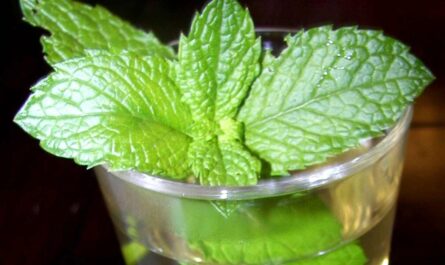What are some of Thai tea health benefits, nutrition, recipes, & side effects? Thai tea is a delightful beverage that offers a perfect balance of bold tea flavor, creamy sweetness, and vibrant color. Its simple yet indulgent ingredients make it a beloved choice for tea enthusiasts and newcomers alike. Whether enjoyed on a hot summer day or as a comforting treat during colder months, Thai tea never fails to delight the senses and evoke a sense of tropical bliss. However, it’s essential to consume it in moderation and be mindful of its nutritional content to fully savor its deliciousness without overindulging. In this article, we will share some of Thai tea’s health benefits, nutrition, recipes, & side effects. Keep reading.
Nutritional facts of Thai Tea
Thai tea is a beverage originating from Thailand that has gained popularity worldwide for its unique flavor and vibrant appearance. This traditional drink is typically made from strongly brewed Ceylon tea, which is then mixed with condensed milk and sugar, giving it a rich and creamy texture. The tea is often served over ice, making it a refreshing choice, especially in hot climates. Its distinctive orange hue, achieved through the addition of food coloring or natural ingredients like turmeric, adds to its allure.
The Ingredients of Thai Tea
The key ingredients in Thai tea include black tea, condensed milk, and sugar. The black tea used is usually a strong, robust variety, such as Ceylon tea, which provides a bold flavor that stands up well to the sweetness of the other ingredients. Condensed milk adds creaminess and richness to the tea, while sugar enhances its sweetness, creating a balanced and indulgent beverage. Additionally, some variations may include spices like star anise or cardamom for added complexity and depth of flavor.
Brewing Process and Preparation
The brewing process for Thai tea involves steeping the black tea leaves in hot water to extract their flavor and aroma fully. Once brewed, the tea is strained to remove the leaves, and then condensed milk and sugar are added to taste, typically while the tea is still hot to ensure proper dissolution. Afterward, the tea is chilled by pouring it over ice or refrigerating it until cold. Some recipes may also call for the addition of evaporated milk or coconut milk for a slightly different flavor profile.
Nutritional Content and Considerations
While Thai tea is undoubtedly delicious, it’s essential to be mindful of its nutritional content, particularly its sugar and calorie content. Due to the addition of condensed milk and sugar, Thai tea tends to be high in calories and carbohydrates, making it a treat best enjoyed in moderation. Those watching their sugar intake may opt for alternatives like sugar-free sweeteners or reducing the amount of sugar used in the recipe. Additionally, individuals with lactose intolerance should be cautious, as condensed milk contains lactose, which may cause digestive discomfort for some people.
Serving Suggestions and Variations
Thai tea is versatile and can be enjoyed in various ways beyond its classic preparation. Some people prefer to serve it hot, especially during cooler months, while others enjoy it cold over ice for a refreshing pick-me-up. For an extra indulgent treat, Thai tea can be topped with whipped cream or a drizzle of caramel sauce. Moreover, adventurous home cooks may experiment with different tea blends or flavorings to create their unique twists on this beloved beverage, such as adding a hint of vanilla or substituting coconut milk for a dairy-free option.
How much White Thai Tea to drink every day?
Determining the appropriate daily consumption of Thai tea involves assessing personal tolerance levels, monitoring caffeine and sugar intake, considering cultural practices, and seeking professional guidance when needed. By taking these factors into account and practicing moderation, individuals can enjoy Thai tea as part of a balanced lifestyle while minimizing potential health risks. Flexibility and mindfulness are key in adapting consumption habits to suit individual preferences and needs.
Assessing Personal Tolerance
Determining an individual’s tolerance to Thai tea is a crucial step in establishing an appropriate daily intake. This involves gauging how the body reacts to the caffeine and sugar content present in the beverage. Factors such as sensitivity to stimulants, metabolism rate, and overall health play significant roles in this assessment. It’s essential to start with small servings and gradually increase consumption while monitoring for any adverse reactions or discomfort.
Monitoring Caffeine Content
Given that Thai tea typically contains caffeine from black tea leaves, it’s essential to be mindful of overall caffeine intake. Excessive caffeine consumption can lead to symptoms such as restlessness, palpitations, and increased blood pressure. Individuals should keep track of their daily caffeine intake from all sources, including coffee, energy drinks, and certain medications, to ensure they stay within recommended limits.
Evaluating Sugar Levels
The sugar content in Thai tea can vary depending on the recipe and preparation method. Excessive sugar consumption is associated with various health risks, including obesity, diabetes, and dental problems. Therefore, individuals should be cautious of the amount of sugar consumed through Thai tea and consider alternatives such as using natural sweeteners like honey or reducing the sugar content in homemade blends. Monitoring total sugar intake from all sources is vital for maintaining overall health and well-being.
Considering Cultural Practices
In Thai culture, tea drinking is often a social activity that fosters connection and relaxation. Understanding the cultural context surrounding Thai tea consumption can provide insight into appropriate serving sizes and frequency. While it’s customary to enjoy Thai tea as part of social gatherings or meals, moderation is still key to avoiding excessive intake and its associated health risks.
Seeking Professional Guidance
For individuals with specific dietary restrictions or health concerns, seeking guidance from healthcare professionals or nutritionists is advisable. These experts can offer personalized recommendations based on individual needs, helping to strike a balance between enjoying Thai tea and maintaining overall health. Additionally, they can provide valuable insights into alternative beverages or modifications to traditional recipes to better align with dietary goals and preferences.
What is the best time to drink Thai Tea?
Mornings: A Serene Start
In the tranquil embrace of the morning, when the world awakens with a gentle sigh, Thai tea can be a splendid companion. Its robust flavors, infused with hints of spices, offer a warm embrace to kickstart your day. As the sun begins its ascent, indulging in a cup of Thai tea can infuse your morning routine with a burst of exoticism, preparing you for the day ahead. Whether enjoyed alongside a hearty breakfast or savored during a quiet moment of reflection, Thai tea can add a touch of vibrancy to your mornings, energizing you for the challenges that lie ahead.
Afternoons: A Midday Delight
Amid the bustling afternoon, amidst the hustle and bustle of daily life, Thai tea emerges as a delightful respite. As the clock ticks towards noon, or perhaps in the leisurely hours of the afternoon, a sip of Thai tea can offer a much-needed break from the rigors of the day. Its rich, creamy texture coupled with the subtle sweetness can invigorate your senses, providing a welcome interlude amid a busy schedule. Whether enjoyed during a quick break at work or as a refreshing accompaniment to a light lunch, Thai tea can add a touch of indulgence to your afternoon routine, rejuvenating your spirit for the tasks ahead.
Evenings: A Tranquil Interlude
As the sun begins its descent and the day gradually mellows into the evening, Thai tea beckons as a soothing companion. Its warm hues and comforting aroma create the perfect ambiance for unwinding after a long day. Whether enjoyed alone in quiet contemplation or shared with loved ones during a cozy gathering, Thai tea can evoke a sense of serenity, gently easing you into the evening hours. With each sip, the stresses of the day seem to melt away, replaced by a sense of contentment and relaxation. As you settle into the evening, indulging in a cup of Thai tea can be the perfect way to unwind and savor the moments of tranquility.
Nights: A Flavorful Finale
In the enchanting embrace of the night, Thai tea takes on a new allure, offering a flavorful finale to the day. Whether enjoyed under the twinkling stars or in the comfort of your own home, Thai tea can be a delightful accompaniment to nighttime rituals. Its bold flavors and lingering sweetness can provide a satisfying conclusion to the day’s adventures, leaving you with a sense of fulfillment. Whether savored as a nightcap before bed or as a companion during a late-night chat, Thai tea can add a touch of indulgence to your nighttime routine, leaving you with fond memories to carry into the night.
Health benefits of Thai Tea
While the basic recipe for Thai tea yields a delicious beverage, there are several ways to elevate your tea-drinking experience by incorporating additional ingredients and techniques. These enhancements can add depth, complexity, and visual appeal to your Thai tea creation. Here are some of the health benefits of Thai tea:
1. Boosts Immune System
Thai tea is packed with antioxidants, vitamins, and minerals that bolster your body’s defense against infections and diseases. These antioxidants fight off harmful free radicals, reducing the risk of chronic illnesses such as heart disease, cancer, and diabetes. The high levels of vitamin C found in Thai tea also play a vital role in supporting the immune system by enhancing the production of white blood cells, which are essential for fighting infections. Additionally, the presence of zinc and selenium in Thai tea further strengthens the immune response, helping your body ward off illnesses more effectively.
2. Improves Digestive Health
Drinking Thai tea can aid in digestion by promoting the production of digestive enzymes that break down food more efficiently. The combination of herbs and spices in Thai tea, such as star anise and cardamom, have been traditionally used to alleviate digestive issues like bloating, indigestion, and stomach cramps. Moreover, the natural caffeine content in Thai tea stimulates the muscles in the gastrointestinal tract, promoting bowel movements and preventing constipation. Regular consumption of Thai tea can help maintain a healthy digestive system, leading to better nutrient absorption and overall gut health.
3. Enhances Mental Clarity
The caffeine content in Thai tea acts as a natural stimulant, improving alertness, concentration, and cognitive function. It stimulates the central nervous system, increasing neurotransmitter activity in the brain, which can enhance memory, focus, and problem-solving skills. Additionally, Thai tea contains L-theanine, an amino acid that works synergistically with caffeine to promote a state of calmness and mental clarity without the jittery side effects often associated with caffeine consumption. This unique combination of caffeine and L-theanine in Thai tea can help you stay mentally sharp and focused throughout the day.
4. Supports Weight Management
Incorporating Thai tea into your diet can aid in weight management due to its metabolism-boosting properties. The caffeine and catechins present in Thai tea stimulate thermogenesis, the process by which your body generates heat and burns calories. This can help increase your metabolic rate, making it easier to burn fat and lose weight. Furthermore, Thai tea is often served with low-fat or non-dairy milk options, making it a healthier alternative to sugary beverages like sodas and fruit juices. By replacing high-calorie drinks with Thai tea, you can reduce your overall calorie intake and support your weight loss goals effectively.
5. Promotes Hydration
Staying hydrated is essential for overall health, and Thai tea can contribute to your daily fluid intake. While traditional Thai tea recipes may include condensed milk and sugar, opting for unsweetened or lightly sweetened versions can provide hydration without excessive calories or added sugars. Additionally, the herbal ingredients in Thai tea, such as lemongrass and pandan leaves, contain natural electrolytes that help replenish fluids and maintain electrolyte balance in the body. Drinking Thai tea regularly can be a flavorful and refreshing way to stay hydrated, especially in hot climates or during physical activity.
6. Boosts Energy Levels
Thai tea contains caffeine, a natural stimulant that can help increase energy levels and combat fatigue. The caffeine content in Thai tea provides a quick energy boost by blocking the action of adenosine, a neurotransmitter that promotes relaxation and sleepiness. This results in improved alertness and mental focus, making Thai tea an excellent pick-me-up beverage during the day. Moreover, the combination of caffeine and sugar found in Thai tea can provide a rapid source of energy, making it a popular choice for people looking to overcome tiredness or lethargy.
:max_bytes(150000):strip_icc()/ThaiIcedTea-RM-7508-6e3c6a93225e4dbd9a3e294defac571d.jpg)
7. Supports Bone Health
Thai tea contains significant amounts of calcium and vitamin D, two essential nutrients for maintaining strong and healthy bones. Calcium is crucial for bone formation and density, while vitamin D aids in the absorption of calcium from the intestines into the bloodstream. By including Thai tea in your diet, you can help prevent osteoporosis and reduce the risk of fractures or bone-related disorders. Furthermore, the presence of phosphorus in Thai tea also contributes to bone health by supporting bone mineralization and structure. Regular consumption of Thai tea can contribute to overall bone strength and resilience.
8. Improves Skin Health
The antioxidants found in Thai tea, such as polyphenols and flavonoids, can help improve skin health by protecting against oxidative stress and inflammation. These antioxidants scavenge free radicals, preventing damage to skin cells and reducing the signs of aging, such as wrinkles, fine lines, and age spots. Additionally, the anti-inflammatory properties of Thai tea can help alleviate skin conditions like acne, eczema, and psoriasis. The hydrating effect of Thai tea also helps maintain skin moisture levels, resulting in a radiant and glowing complexion. Incorporating Thai tea into your daily routine can contribute to healthier, more youthful-looking skin.
9. Reduces Stress and Anxiety
Thai tea contains herbs and spices like lemongrass, pandan leaves, and ginger, which have natural calming properties that can help reduce stress and anxiety levels. Lemongrass, in particular, has been used in traditional medicine for its relaxing effects on the mind and body. The aroma and flavor of Thai tea can also have a soothing effect on the senses, promoting feelings of relaxation and well-being. Moreover, the ritual of preparing and enjoying a cup of Thai tea can provide a moment of mindfulness and tranquility in a busy day. By incorporating Thai tea into your relaxation routine, you can effectively manage stress and promote mental wellness.
10. Supports Heart Health
Regular consumption of Thai tea can benefit heart health by lowering cholesterol levels and reducing the risk of cardiovascular diseases. The antioxidants in Thai tea help prevent the oxidation of LDL (bad) cholesterol, which can lead to plaque buildup in the arteries and increase the risk of heart attacks and strokes. Additionally, the flavonoids found in Thai tea have anti-inflammatory properties that can help reduce inflammation in the blood vessels, improving blood flow and circulation. The presence of potassium in Thai tea also helps regulate blood pressure, further supporting heart health. Incorporating Thai tea into a balanced diet can contribute to a healthy heart and reduce the risk of heart disease. How AI, ChatGPT maximizes earnings of many people in minutes
11. Supports Liver Function
Thai tea contains compounds like catechins and polyphenols that support liver health by promoting detoxification and reducing oxidative stress. These compounds help neutralize harmful toxins and free radicals in the liver, preventing damage to liver cells and tissues. Moreover, the presence of antioxidants in Thai tea can help protect the liver from conditions like fatty liver disease and cirrhosis. Regular consumption of Thai tea as part of a balanced diet can support optimal liver function and promote overall detoxification.
12. Enhances Respiratory Health
The herbal ingredients in Thai tea, such as ginger and star anise, have expectorant properties that can help alleviate respiratory symptoms like coughing, congestion, and difficulty breathing. Ginger, in particular, has been used for centuries in traditional medicine to treat respiratory conditions like asthma and bronchitis. The aromatic spices in Thai tea also have a warming effect on the respiratory tract, helping to loosen mucus and facilitate easier breathing. Drinking Thai tea regularly can provide respiratory support and promote lung health, especially during cold and flu season. Motivation – Mind – Success – Thinking – Productivity – Happiness
13. Improves Oral Health
Thai tea contains compounds like polyphenols and tannins that have antibacterial properties, which can help prevent tooth decay and gum disease. These compounds inhibit the growth of bacteria in the mouth that contribute to plaque formation and cavities. Additionally, the presence of fluoride in Thai tea helps strengthen tooth enamel and protect against acid erosion. Drinking Thai tea without added sugar or sweeteners can promote oral hygiene and reduce the risk of dental problems. However, it’s essential to practice good oral hygiene habits such as regular brushing, flossing, and dental check-ups in conjunction with consuming Thai tea for optimal oral health. Business – Money Making – Marketing – E-commerce
14. Supports Eye Health
Thai tea contains antioxidants like lutein and zeaxanthin, which are essential for maintaining healthy vision and protecting against age-related macular degeneration and cataracts. These antioxidants help filter out harmful blue light and protect the retina from damage caused by oxidative stress. Moreover, the vitamin A content in Thai tea supports the production of rhodopsin, a pigment in the retina that is critical for low-light and night vision. By including Thai tea in your diet, you can support eye health and reduce the risk of vision problems as you age.
15. Enhances Mood
The aromatic herbs and spices in Thai tea, such as lemongrass and cinnamon, have mood-enhancing properties that can help uplift spirits and promote a sense of well-being. Lemongrass, in particular, has been used in aromatherapy for its calming and mood-boosting effects. The act of sipping a warm cup of Thai tea can also have a comforting and soothing effect on the mind, reducing feelings of stress and tension. Additionally, the caffeine content in Thai tea can provide a temporary mood lift by increasing dopamine levels in the brain. Incorporating Thai tea into your daily routine can help improve mood and promote emotional balance. Health books, guides, exercises, habits, Diets, and more
How to Make Thai Tea
Thai tea is a delightful and refreshing beverage originating from Thailand. Its unique blend of flavors makes it a popular choice among tea enthusiasts worldwide. This exotic drink combines strong brewed tea, creamy milk, and sweeteners to create a harmonious balance of flavors that tantalize the taste buds.
Ingredients Needed
To prepare Thai tea, you will need the following ingredients:
- Black Tea Leaves: Black tea serves as the base for Thai tea, imparting its robust flavor and deep color. Fitness – Meditation – Diet – Weight Loss – Healthy Living – Yoga
- Sweetened Condensed Milk: This creamy and sweet component adds richness to the tea while balancing its boldness.
- Evaporated Milk: Evaporated milk provides a smooth and velvety texture to the drink, enhancing its creaminess.
- Granulated Sugar: Sugar is used to sweeten the tea according to personal preference.
- Water: Water is essential for brewing the tea leaves and diluting the flavors to achieve the desired strength.
Proportions to Follow
To achieve the perfect balance of flavors in Thai tea, follow these proportions:
Steps to Make Thai Tea
Making Thai tea is a simple and enjoyable process. Follow these steps:
- Boil Water: Begin by bringing water to a boil in a saucepan or kettle. The water should be enough to brew the desired number of servings of tea.
- Steep Tea Leaves: Once the water reaches a rolling boil, add the black tea leaves to a tea infuser or directly into the pot. Allow the tea leaves to steep for about 5 minutes, or until the water develops a rich, dark color.
- Strain Tea: After steeping, remove the tea leaves from the pot by straining the liquid through a fine mesh sieve or a tea strainer. This step ensures a smooth and sediment-free tea.
- Sweeten the Tea: While the tea is still hot, add granulated sugar to taste, stirring until completely dissolved. Adjust the sweetness according to your preference.
- Add Milk: Pour the sweetened condensed milk and evaporated milk into the brewed tea, stirring gently to combine. The milk will impart a creamy texture and rich flavor to the tea.
- Serve: Once all the ingredients are well mixed, pour the Thai tea into individual serving glasses filled with ice cubes. Garnish with a sprig of mint or a slice of lime for an extra touch of freshness. Enjoy your homemade Thai tea! Tea, Coffee, Energy Drinks, Juice, Beverage, Smoothie, and more
By following these simple steps and proportions, you can create a delicious and authentic Thai tea right in the comfort of your own home. Experiment with different variations and adjust the ingredients to suit your taste preferences. Cheers to indulging in this delightful beverage!
Side Effects of Thai Tea
Other Interesting Articles
- 21 Health Benefits of Chai Green Tea: Recipe, Side Effects
- 22 Proven Health Benefits of Drinking Milk Daily At Night
- Hidden Disadvantages of Drinking Milk for Skin: 11 FAQs
- 22 Chai Tea Health Benefits, Recipe, Time, Side Effects
- 22 Milima Tea Health Benefits, Recipe, Time, Side Effects
- 22 Irish Breakfast Tea Health Benefits, Recipe, Side Effects
- 20 Rukeri Tea Health Benefits, Recipe, Time, Side Effects
- 19 Darjeeling Black Tea Health Benefits, Recipe, Side Effects
- 19 Panyang Congou Tea Health Benefits, Recipe, Side Effects
- Black Tea vs Milk Tea: 15 Benefits and 10 Side Effects
- 20 Side Effects of Drinking Ginger Tea in Empty Stomach
- 20 Silent Disadvantages of Drinking Milk with Turmeric
- 24 Benefits of Drinking Milk Everyday During Pregnancy
- 20 Hidden Disadvantages of Drinking Lemon Water Daily
- Black Tea vs Normal Tea: 15 Benefits and 10 Side Effects
- Best Time to Drink Milk: Seniors, Adults, Weight Loss, Muscle
- 21 Keemun Tea Health Benefits, Recipe, Time, Side Effects
- 10 Great Health Benefits of Drinking Hot Tea in the Morning
- 23 Lapsang Souchong Tea Health Benefits, Side Effects
- 21 Probable Disadvantages of Drinking Tea in Paper Cups

:max_bytes(150000):strip_icc()/ThaiIcedTea-RM-7508-6e3c6a93225e4dbd9a3e294defac571d.jpg)


